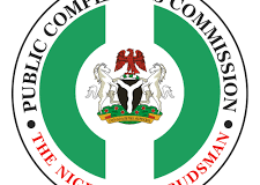Nigeria faces numerous challenges, with complaints arising daily across various sectors. Transforming these grievances and deficiencies into opportunities for change, rectification, and progress is crucial for national development.
In the contemporary landscape, many Nigerians turn to online platforms, especially popular blogs and social media, to seek social justice and address issues with government agencies or representatives. Social media has emerged as a potent tool for instigating societal change and promoting justice in the country.
Despite its mandate, the Public Complaints Commission currently struggles due to a lack of awareness among Nigerians regarding its existence. To enhance its impact and better cater to the populace, the Commission must prioritize bolstering its online presence.
One effective strategy involves engaging with popular blogs and influencers, encouraging them to tag the Commission in instances of injustice, reports, or complaints in relevant posts. By leveraging these online channels, the Commission can raise awareness of its mission, swiftly address grievances, and ultimately serve Nigerians more effectively and also grow it’s following and engagements on all it’s social media pages.
The Public Complaints Commission (PCC) Nigeria, is a government agency tasked with addressing administrative grievances, can improve its efficiency and operational strategies to better serve Nigerians through some of the following measures:
1. Technology Integration**: Implementing a robust online feature in their website for lodging complaints and tracking their progress can streamline operations and enhance accessibility for citizens.
2. Data Analytics: Utilize data analytics to identify trends in complaints, optimize resource allocation, and proactively address systemic issues and post such progresses online on their social media pages.
3. Stakeholder Engagement: Collaborate with other government agencies, civil society organizations, and the private sector to leverage resources and expertise for more effective complaint resolution.
4. Training and Capacity Building: Invest in continuous training for staff to enhance their skills in conflict resolution, investigation techniques, and customer service.
5. Transparency and Accountability: Ensure transparency in complaint handling processes, maintain clear communication with complainants, and be accountable for the outcomes of investigations.
6. Public Awareness Campaigns: Conduct awareness campaigns to educate Nigerians about the role and services of the PCC, encouraging more individuals to come forward with their grievances.
7. Efficient Case Management: Implement efficient case management systems to track complaints from initiation to resolution, reducing delays and ensuring timely responses.
8. Feedback Mechanisms: Establish feedback mechanisms to gather input from complainants on their experience with the PCC and use this feedback to continually improve services.
9. Performance Measurement: Develop key performance indicators to measure the effectiveness of the PCC’s operations and make data-driven decisions for improvement.
10. Continuous Improvement: Foster a culture of continuous improvement within the organization by regularly evaluating processes, seeking innovative solutions, and adapting to changing needs.
By implementing these strategies, the Public Complaints Commission can enhance its efficiency and operational effectiveness, ultimately better serving the Nigerian population and promoting social justice in the country.


